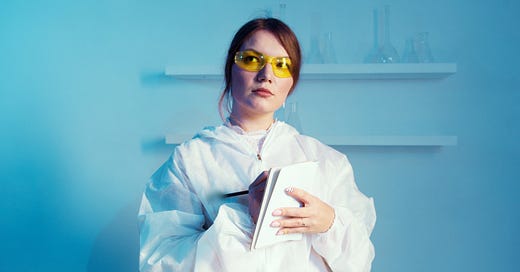Being curious has led me along a few different professional pathways. Some were a waste of time and effort, while others have been a good investment in my bank of knowledge. The most frustrating thing about curiosity is the opportunities you find for yourself can be stymied because of other individuals’ actions and decisions or events that are out of your control. Despite the challenges, being curious about how things work or why things happen is a good way to be. You might think that inspiration is a form of curiosity in that people are inspired and develop thoughts and ideas as they form in their mind, or while experiencing a range of feelings. An example would be when someone is inspired to write a fictional story, plan a project or develop an application.
Image by Artem Podrez / Pexels
Advancements in technology make life simpler, but is technology increasing our preponderance to be idle, to avoid the stress of work and the responsibility that comes with it, by giving software programs more control in our professional lives. There are those who are excited by the invention of ChatGPT and its next generation, Anthropic. Anthropic is only currently available to users in the UK and the USA and is supposed to be more logical and intuitive than ChatGPT with the ability to summarize complex texts of information. If you had a mountain of work to read and little time to summarize the main points, then naturally I know the option that most people would take. Anthropic is also being used to write creatively, with the user being the muse and providing the prompts for it to do its creative thing. I wonder if its AI software is wired to feel feelings of inspiration.
Inspiration does not always appear when an author is writing, or while observing an event, a person or a place. It can be quite the will of the wisp, appearing fleetingly and then disappear. But curiosity and inspiration are similar in how they work by subconscious design, because both motivate you to follow a particular path.
According to the American Psychological Association (APA), emotion is defined as “a complex reaction pattern, involving experiential, behavioral and physiological elements.” Emotions are how individuals deal with matters or situations they find personally significant.
Curiosity is regarded as a human emotion, because intrigue about different topics and experiences drives the need to learn new knowledge and skills. As a consequence of emotion comes feelings which can either be positive or negative, depending on the experience and outcome (Tania Lombrozo).
The dictionary defines inspiration as: “the process of being mentally stimulated to do or feel something (esp creative)”. Inspiration can be challenging to understand and describe because what inspires one person may not have any relevance for another.
Inspiration is the feeling experienced as a result of the emotion brought about by a sensory experience or combination of listening, seeing, tasting, touching or smelling. It motivates the creation of poems, stories or artwork, or sets the mind alight with inventive ideas and thoughts (Emotion Typology).
The way human brains and bodies are wired and connected combined with their environment, influences how an individual’s mind engages with other people, places, events and things. Often the enthusiasm felt about an inspiration to find or create something new, prompts conversations with other like-minded people, leading to discussions, sharing of ideas and practices, and the formation of specialized collaborations. Armed with the emotional desire of curiosity, someone might progressively follow inspiration until a target is reached. And it is that result that can either end the game for good, send it to another level or take a different tangent completely.
The curiosity to seek further information is an emotion we all possess and share with animals who are sentient, and scientists have shown many creatures feel pain and express emotion like us. Feeling inspired by the emotion curiosity invites, humans keep going as is our nature, to move beyond the comfort of what we know to be real, into zones that question the laws of science and humanity’s understanding of life on Earth and limited knowledge of the universe.
So, to answer the question: What are you curious about? I am curious about science, the people that do it every day, and I am intrigued by how they came to make a discovery or invent an application. Curiosity is a human emotion, however, scientists are expected to follow a disciplined pathway, where emotions are not recorded in lab books, experiments, field studies or when reporting results. Feelings are on mute, and only the data, critical observations and analysis are recorded.
The brain is a strange thing in how it thinks and responds to everything around it. Scientists have to follow a structured, organized way of working, and report results in language the scientific community can understand and emulate. Everyone needs to dream the impossible before it can become a reality. What scientists have achieved in the past and discovering now is a consequence of harnessing and controlling emotions and feelings in pursuit of their dream, their research objectives. A way of thinking, working and feeling, that is part of being a scientist. For a curious mind like mine, the science world is a fascinating subject to ponder about and be inspired by.
If you would like to learn more about my work specializing in video production at Salty Wave®, you’re welcome to subscribe and follow my story.
Story written by Gabrielle Ahern - Visual Storyteller and Content Producer




